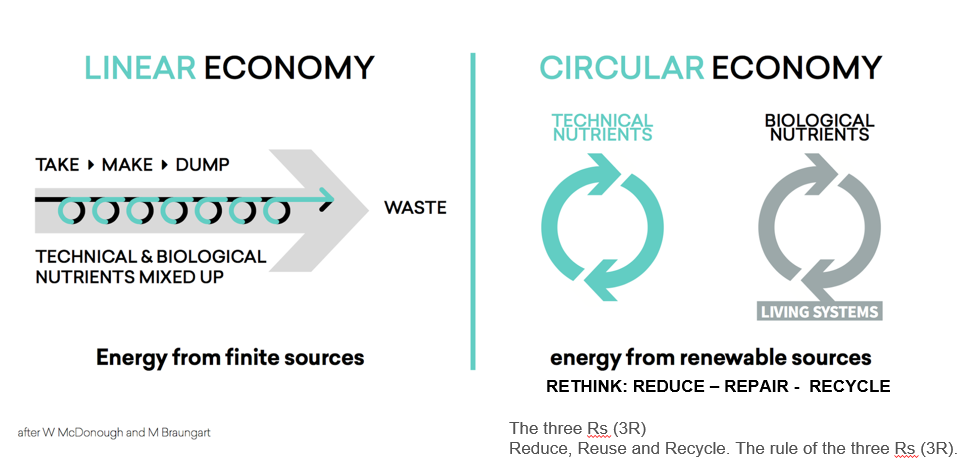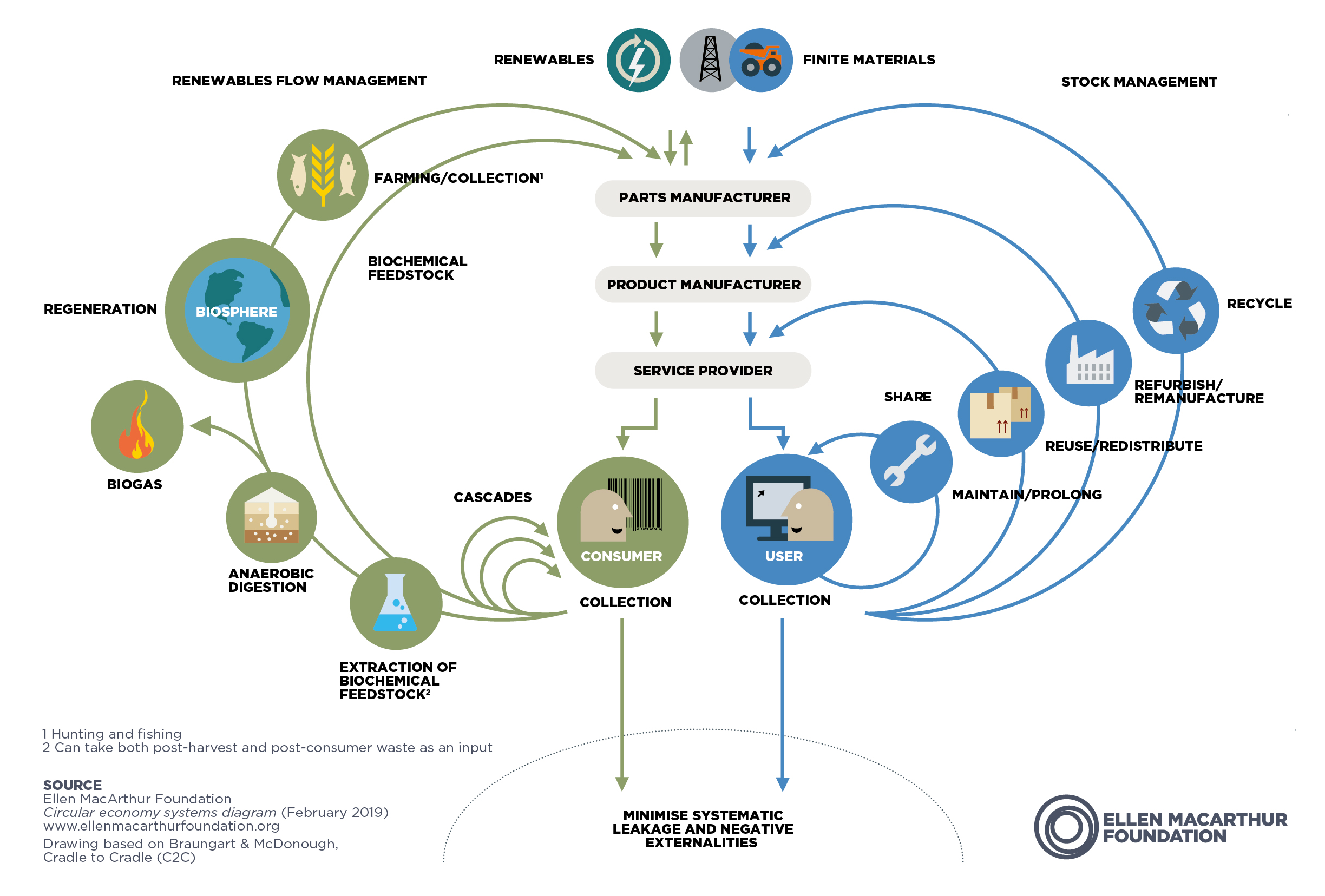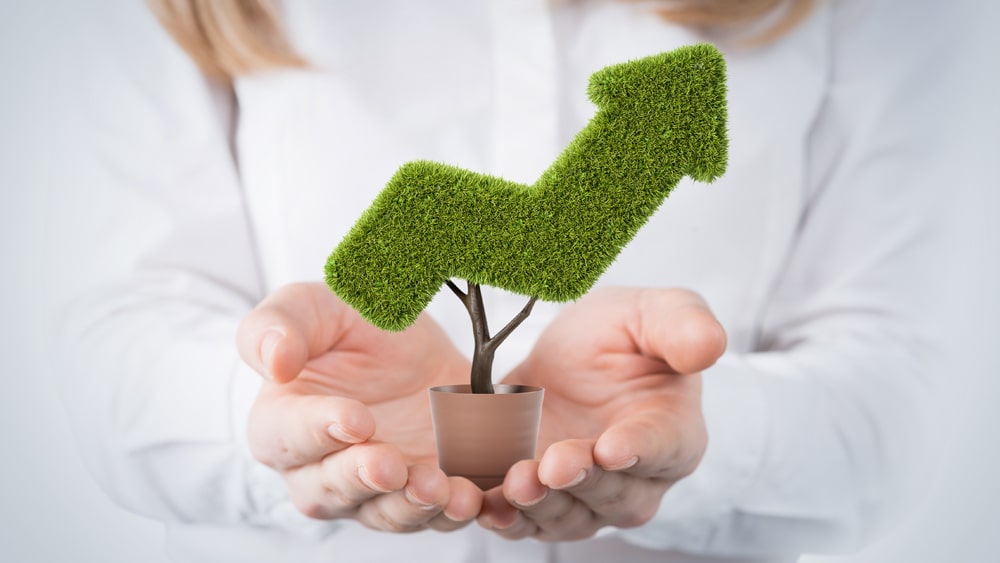Sustainability v/s Circularity
The terms circularity and sustainability are often used interchangeably and that is exactly where the confusion lies. While the two concepts are not entirely different from one another – in fact, they are somewhat related – circularity and sustainability define two distinctive concepts.
The term 'Sustainability'
Individual and collective human activity has a huge impact on our planet and all living organisms. Given that these activities undoubtedly lead to environmental degradation, rapid loss of biodiversity, and climate change, we need to offer ways to solve these problems.
Sustainability is focused on the long-term period and assumes that our actions bring environmental, economic, and social benefits without polluting the environment or spending too many resources.
In 1987, the United Nations Brundtland Commission defined sustainability as “meeting the needs of the present without compromising the ability of future generations to meet their own needs”. Abiding by this definition, sustainability consists of any activity that strives to meet this goal. It is the whole journey from the vision of a sustainable future to the implementation of sustainable practices.
Striving for sustainable development, businesses need to adapt their way of operating. This includes the implementation of circular value chains and the reduction of their carbon footprint as part of a holistic sustainability strategy.
What is Circularity?
Circularity as a term is a bit more specific than sustainability. While sustainability acts as an umbrella for every practice that strives to sustain the future, circularity is more about the practices which lead to sustainability. Like reusing raw materials, refurbishing used products, or recycling old materials and so on.
A circular economy decouples growth from negative externalities by building on the following three key circular economy principles:
- Designing out waste and pollution
- Keeping products and materials in use
- Regenerating natural systems
The figure below showcases the process of circularity. The raw material is manufactured and furbished to create an end product. However, once this product is utilized at its maximum potential, it is discarded as waste. Circularity on the other hand enhances the reuse of the product and/or even refurbishes the waste to restore its value. In this way, circularity closes the loop from waste to return to raw materials.
Unlike a linear economy, which follows the traditional pattern of ‘Take, make, and waste’, a circular economy rethinks this whole process.

The Difference between Sustainability and Circularity
According to the U.S Chamber of Commerce Foundation, sustainability “evolved from the fields of ecology and environmental science, which gave [it] the holistic, systems-based view so crucial to successful programs in this space, but is also biased towards natural systems.”
Sustainability describes all activities which ensure that human beings can co-exist with the natural world around them. This can involve scientific and technological invention as well as a careful practice to reduce the depletion of natural resources. In the Butterfly Diagram, defined by the Ellen Macarthur Foundation, sustainability involves all the activities on the left side. These are focused on the biosphere which means that all practices concern and involve natural resources.

Source: Ellen Macarthur Foundation
Circularity, on the other hand, includes the activities which are defined on the right side of the diagram. Their primary focus is on the technosphere. Circularity demands advances in technology and scientific research to discover new ways of reusing resources. Recyclable raw materials should be designed into a product right at the manufacturing stage so that they can be utilised after their use.
The relation between Circularity and Sustainability
In his paper, ‘The Circular Economy – A new sustainability paradigm?’, Martin Geissdoerfer suggests that both sustainability and circularity “emphasise intra- and intergenerational commitments motivated by environmental hazards and signal the importance of increasing agency and public deliberation upon the multiple and coexisting pathways for development.”
The two concepts also share a global perception, where all problems on a global scale must be addressed through shared responsibilities and by coordinating multiple agencies such as government, businesses, and individuals. They are both involved in several multi-disciplinary approaches which not only help understand the people and the planet approach, but also the profit approach through innovation and design. Due to this reason, both the concepts also show the potential to incur costs and risks but at the same time, they open up opportunities for value creation and diversification.
It can be said that while circularity is all about retaining value, sustainability is all about making the most of value. To be more precise, circularity is what comes into play when a business or a government is planning a strategy – this is where they decide which raw materials go where and how they can retain their value for the maximum period of time. On the other hand, sustainability influences how environmental, social and economic practices are essential agencies to a real change.
 Now you know
Now you know
Now you know that circularity and sustainability aren’t interchangeable terms but they are related. It can be said that while sustainability is the end goal, circularity is a step towards that end goal. Circularity is a practice which focuses on reducing waste as much as possible while keeping a product’s value intact for a longer period of time. This ensures the diminished production of goods which in turn helps reduce pollution and costs. In order to strive for a sustainable future, businesses need to adapt to a circular economy where goods and raw materials are not discarded after use but rather renewed and refurbished to add increasing value.
Sources
- Circularity
https://www.uschamberfoundation.org/circular-economy-toolbox/about-circularity/circularity-vs-sustainability - Sustainability
https://www.un.org/en/academic-impact/sustainability - Report of the World Commission on Environment and
Development: Our Common Future
http://www.un-documents.net/our-common-future.pdf - The Circular Economy – A new sustainability paradigm
https://www.researchgate.net/publication/311776801_The_Circular_Economy_-_A_new_sustainability_paradigm
You might want to learn more about

The Blue Connection
The Blue Connection is an innovative web-based business simulation game. It engages participants in the transformation from a linear to a circular value chain by implementing a circular strategy for a virtual e-bike manufacturer. In teams of 4, participants will represent the functional roles of VP Finance, VP Purchasing, VP Supply Chain, and VP Sales. Experience the circular way of doing business for a sustainable future!

Sustainability
With the growing urgency of combating climate change and the increased need for more sustainable development, it has become inevitable for companies to adapt to a changing world. But what does sustainability actually mean? And how can your business transform its value chain to become more sustainable? In this article, Inchainge discusses everything you need to know about sustainability. Furthermore, we will inform you about our business games. Our business simulations help you grasp crucial strategies that allow businesses to continue their growth sustainably.
Dive into our
knowledge base
Alignment
Blended learning
Experiential learning
Learning
Supply chain
Sustainability
- Sustainability
- Carbon footprint
- Circular Economy
- Does Green Governance drive the ride to a sustainable future?
- Everything You Need To Know About Eco-Efficiency
- Greenwashing: Everything you need to know
- Is it possible to measure the Triple Bottom Line?
- Sustainability v/s Circularity
- The 3Ps Series: People
- The 3Ps Series: Planet
- The 3Ps Series: Prosperity
- The Butterfly Diagram
- The Value Hill
- What are the 3Ps of Sustainability?
- What do we know about the Triple Bottom Line?

